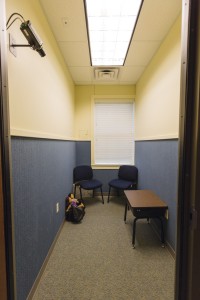Rowland is one of 240 CASAs in Tarrant County. And the world could use more of him. Tarrant County could use more of him, especially. Leading the state in confirmed cases of child abuse and neglect, based on a 2014 report from the Texas Department of Family Protective Services, is Tarrant County. The numbers are shocking and troubling. And haunting: 6,097 confirmed cases, including 11 child deaths.
The numbers may not simply be a reflection of Tarrant County’s growth. Harris County, whose largest city is Houston, had almost as many confirmed cases but has a population more than twice Tarrant’s size.
Rebecca Farrow, CASA’s executive director, said she’s often asked about Tarrant County’s disturbing numbers.
“So why are rates of child abuse so much higher in Tarrant County than anywhere else?” she said. “Dallas is more developed and its growth rates are stable. We are off the charts, but then again, we are growing. When you look at communities with slower growth, those numbers are decreasing. I don’t have an answer. Are we just better at reporting in Tarrant County? Are people here more likely to report and speak up for that child, making our numbers higher? Or is there something else going on. It’s a conundrum.”
Before child-abuse victims are given a CASA, their claims must be vetted by Alliance for Children, a 42-year-old nonprofit that protects and treats child-abuse victims. If abuse is confirmed, the child is separated from his or her caregivers and placed either with relatives or in foster care.
“It starts with an outcry,” said Shellie McMillon, Alliance director of education.
Alliance –– and CASA –– don’t work alone. CPS, Fort Worth police’s Crimes Against Children Unit, and the Tarrant County District Attorney’s office all pitch in.
“The theory behind the model is that when we bring everyone together, the investigations are stronger, and the children and families are receiving services faster,” McMillon said. “We work with the worst of the worst cases like child deaths where abuse or rape is suspected. We have had kids who have been hospitalized.”
Once a child is brought to one of Alliance’s three locations, he or she is interviewed gently by a staff member. Keeping the proceedings low-key is vital –– the police are keenly interested in what the child has to say.
“We don’t want the child to tell their story to too many people,” said Kim Rocha, Alliance coordinator of marketing and public relations. “The more the child tells that story, the more it could change, or the child may just get tired of talking about it. We want to make sure they get interviewed as few times as possible.”
After the police review the video, charges are filed against the alleged perpetrator, an investigation is opened, or the case is dropped. Only when no reliable relative can be located or if the abuse was particularly egregious will the child be placed in foster care. That’s because the Texas Family Code prioritizes returning children to their parents at almost any cost.
“Multiple studies have shown us over decades that children thrive best with their own family raising them, both in the short- and long-term scenarios,” said Natasha Lawry, CASA’s program director. “If that’s not feasible, biological family or very close family are considered for permanent placement. The most extreme remedy for a child’s lack of a safe, permanent home is adoption.”

To prevent children from languishing in the foster care system and to speed up rates of adoption, Congress passed the Adoption and Safe Families Act in 1997, setting strict time limits on how long a child could stay in foster care before the state had to terminate a parent’s rights and make the child eligible for adoption.
Of all of the confirmed cases of child abuse and neglect in Tarrant County last year, 673 resulted in foster care placement.
Child advocates have 18 months to return the child to his or her parents, transfer guardianship to another relative, or terminate the child’s ties to his parents.
The clock begins ticking when the child is placed in foster care. That’s when CASA designates a volunteer advocate to speak on the child’s behalf and potentially change his or her life for the better. Forever.
*****











